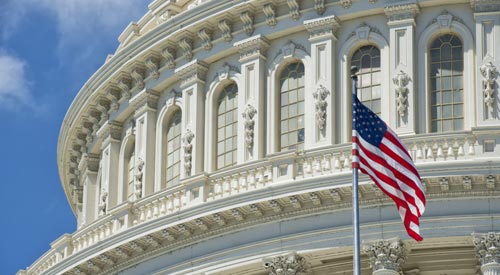How Data Visualization Can Help Cities Save Net Neutrality
Data-Smart City Solutions: As the Federal Communications Commission (FCC) prepares to vote today on the future of net neutrality, vehement debate on the issue continues to dominate the news cycle. Net neutrality is a regulatory framework intended to keep the internet open and fair by prohibiting internet service providers (ISPs) from blocking or slowing down access for specific users or websites. Proponents of net neutrality argue that this regulation is paramount to ensuring that high-speed internet is available to all and that companies affiliated with ISPs or willing to pay a premium for faster speeds do not come to dominate the online world. Opponents, like FCC chairman Ajit Pai, argue that existing laws and market forces are sufficient to ensure ISPs do not create an internet dominated by the highest bidder, and that relaxing net neutrality will produce more consumer choices, lower prices, and more innovation.
Thus far, debate has mostly resolved around questions of who will dominate the internet if net neutrality is repealed, especially in the realm of the digital media sites that provide many residents with information. Less often mentioned however are the potential implications on low-income communities that could lose high-speed access if ISPs decide to roll back service in their neighborhoods.
Tags
Share
Top Stories
- Future-proofing smart cities with open standards
- 5 States Challenged the Federal Contractor Wage Increase and Lost
- States should follow feds in Chinese tech bans
- A new initiative seeks to help small cities access infrastructure funding
- Governments view open source as critical for enhancing digital services, experts say
- More States Move to Ban TikTok from Government Devices
- Cyber, digital services, workforce primary focus for state CIOs in 2023
- Virginia has a data center problem
- Efficient public safety demands evolving tech
- Digitized services drive citizen satisfaction
- State chief information officers are handling much more than just tech
- States target mainframes in legacy system modernization
- How one city’s IT team keeps up with rapid growth
- How one agency’s cloud migration smoothed the path for others
- NASCIO: States must ‘hyper-focus’ on IT modernization
- Louisiana Becomes First State to Receive Internet for All Grants
i360Gov Newsletters
The most significant government policy, business, and technology news and analysis delivered to your inbox.
Subscribe NowTrending
- Mayor launches IT modernization to boost services delivery
- Local government on the edge: The future of IT infrastructure
- Digitized services drive citizen satisfaction
- Why cities and towns see a huge economic opportunity in the semiconductor bill
- New York state pumps the brakes on crypto mining
- The best offense is a strong defense: Improve cloud security with visibility and zero trust segmentation
- How state and local leaders can use data to ensure broadband access for all
- Over $105 Million Going to Better Internet for Native American Communities


















